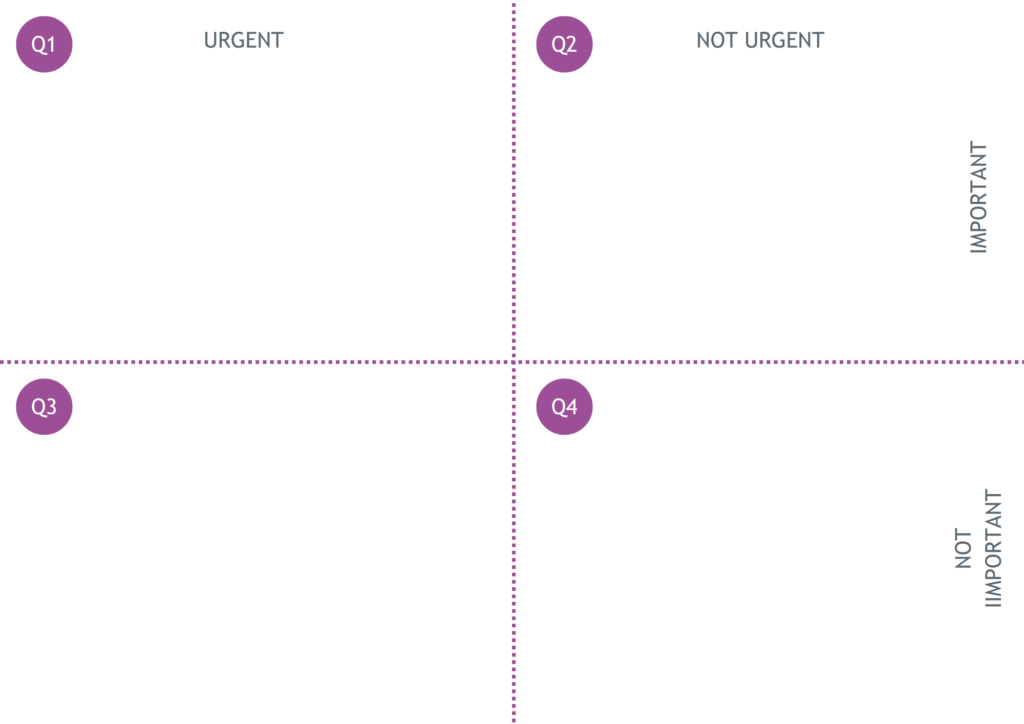Do you find yourself distracted by trivial tasks at work, such as designing the decks, taking meeting notes or organising the Christmas party? Non-promotable tasks are defined as those that benefit your team or employer, but likely don’t contribute to your performance review or overall career advancement — and evidence suggests that women pick up the bulk of these ‘behind-the-scenes’ transactions.[1]
Numerous studies show that women are more likely to take on ‘service’ tasks, and much less likely to take on ‘high-promotability’ tasks that offer development opportunities, such as managing diversity initiatives, product ownership or researching industry trends. Not only are women more likely to volunteer for such tasks (48% more likely according to one study), they’re also more likely to be assigned them by their managers.[2]
Isolated incidents of note-taking and organising social events may not seem time-consuming or problematic, but according to Babcock, Peyser, Vesterlund and Weingart — authors of The No Club: Putting a Stop to Women’s Dead-End Work — when they become the norm, they can add up to an insidious impact on women’s career trajectories. At one consultancy firm studied by the authors, junior women spent an average of 200 hours more each year carrying out non-promotable tasks than their male counterparts — something that came at the expense of their salaries and promotions. Meanwhile, the senior women, in addition to taking on non-promotable tasks, spent as many hours on promotable work as the senior male colleagues — meaning that they worked far more overall hours.
So why do women get lumbered with the bulk of the ‘office housework’? Studies of single sex groups indicate that it’s not that women are any better suited to these types of tasks; nor are they more eager than men to take them on.[3] Far more likely, theorise researchers, is that in mixed gender workplaces, there is a shared expectation that women will be more amenable to manage the trivial — and less visible — tasks that abound.
Perhaps this is sounding all too familiar, and you recognise that you’ve fallen into the trap of taking on non-promotable tasks? In that case, it’s never too late to tweak your work mode to ensure you’re not doing more than your fair share of admin, and getting a good portion of the meaty projects that are really going to make the difference over the long term.
One of the keys is to use a robust prioritisation method.
But when your to-do list is overwhelming (something 98% of everywomanNetwork members relate to either ‘sometimes’ or ‘always’), effective prioritisation can take a backseat. When you’re in churn mode, it’s all-too-easy to view all your tasks as equal and feel like everything needs to be done ‘now’.
This is where Steven Covey’s Time Management Matrix can be a game-changer, helping you get the important things done, identify what isn’t important, and leave far less space for those non-promotable tasks.

Our guide to the Time Management Matrix
START WITH Q1. This category is for tasks which are both ‘urgent’ AND ‘important’.
- ‘Urgent’ tasks have a time limit or a deadline.
- ‘Important’ tasks are relevant for you achieving your own goals. In a professional setting, these are your ‘promotable’ tasks.
Look over your to-do list for the coming week, month or quarter. Highlight the tasks that are truly both ‘urgent’ and ‘important’. Be strict and call in a trusted colleague or mentor if you need an independent view: if it isn’t something that you have to do for your own career or personal development, then it doesn’t belong in this category.
NEXT LOOK AT Q2. This one requires a bit more self-reflection. Ask yourself, ‘What kind of leader do I want to be?’ and ‘What kind of employee do I want to be?’ There will be certain things you can do that will help you get to where you want to be. They might include learning a new skill or software. These things are not ‘urgent’, because you don’t need it to do your job. But it’s ‘important’ because it will make you better at your job, and ultimately, more visible.
Training someone else to do a routine task is another example of a Q2 activity. If you’re the only person in the company who knows how to use a piece of software or run a process, that workload will always fall on you. You might balk at spending a whole day training an employee to share the load, but consider the future time you’ll win back.
The lack of urgency around Q2 tasks can mean they easily slip down the list, but it’s crucial you plan time for them, and protect this time as if it were a meeting with your CEO. By focusing on Q2 tasks, you can avoid them becoming Q1 crises further down the line.
MOVING ONTO Q3 – your ‘urgent’ but ‘not important’ list. What are the things you do every week that are not really a primary focus for you, but nevertheless seem to take up a lot of time? This is typically the quadrant where your non-promotable tasks live and where you need to limit your time. All jobs entail some work of this nature. However, we tend to focus a disproportionate amount of time on these things because they feel important and there’s a sense of urgency around them. They seldom require as much attention as we give them, and could be shared, delegated or just parked.
Emails are a good example of this. Software company RescueTime recently calculated that its users were checking email or instant messenger tools like Slack on average once every six minutes.[4] Such frequent disruptions make it almost impossible to focus and are hugely detrimental to producing valuable work. Use your own judgement here: some emails will be important and require your attention, but many — for example a colleague asking you a question they could find the answer to themselves — can wait. It can be helpful to set aside 30 minutes at points in your day to check and respond to emails, then turn off notifications whilst doing other tasks.
Finally, let’s look at Q4. Activities that are neither ‘important’ nor ‘urgent’ fall into this category, and they should be fairly easy to identify. They might be the things you turn to when you’re in procrastination mode, such as joining in group email chat, scrolling through social media, chitchatting with colleagues when you’re on a deadline or getting involved in someone else’s workload. They might be things that strictly speaking fall outside your remit but that you hold onto because you like doing them (perhaps thereby denying someone else the growth opportunity). When your aim is to focus and produce valuable work, items in this quadrant should be avoided entirely.
WHAT NEXT?
If you’ve become the queen of non-promotable tasks, you may need to go beyond just managing your time, and focus too on managing others’ expectations and perceptions of you. You’ll need to know your boundaries and communicate these clearly; ‘people pleasing’ will also need to become a thing of the past; and you’ll need to get comfortable with saying ‘No’. The reward for tackling each of these milestones will be a ‘to do’ list that puts you in control of your own career, rather than at the mercy of others’.
[1] https://hbr.org/2018/07/why-women-volunteer-for-tasks-that-dont-lead-to-promotions
[2] https://hbr.org/2018/07/why-women-volunteer-for-tasks-that-dont-lead-to-promotions
[3] https://hbr.org/2018/07/why-women-volunteer-for-tasks-that-dont-lead-to-promotions
[4] https://blog.rescuetime.com/communication-multitasking-switches/





